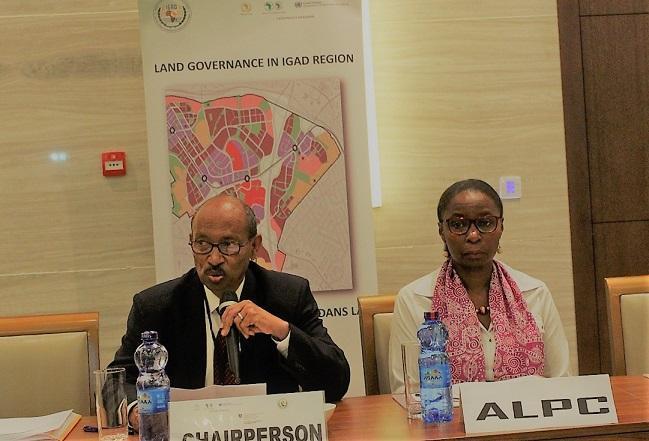15 March 2019, ADDIS ABABA, Ethiopia: The Intergovernmental Authority on Development (IGAD), in collaboration with the African Land Policy Centre based at the United Nations Economic Commission for Africa in Addis Ababa, today held a workshop to validate a Framework on harmonised land policies in the IGAD region.
Given that three of IGAD Member States, namely Kenya, South Sudan and Uganda, are also members of the East African Community (EAC), it was decided that the convergence framework for IGAD will be used for learning exchange within the EAC Member States as a whole.
The IGAD harmonization framework seeks to equip Member States with a common reference frame to guide and facilitate the formulation of reliable land policies that guarantee the rights of local communities to securely access land, which is indispensable for attaining social peace and sustainable economic development within the regions. The goal of the Framework is to promote consensus and convergence of national land policies around fundamental values and principles of economic growth, equity, good governance and sustainable management of the environment.
Participants to the one-day validation workshop were Member States representing government agencies in charge of land and other related government departments, and regional experts. Participants were also from the African Union Commission,
the Network of Excellence on Land Governance in Africa institutions, IGAD CSO platform, development partners such as the Swiss Development Agency, and the German Agency for Development GIZ.
In his opening remarks, the Director of Agriculture and Environment Division at IGAD
urged the participants to “look critically at the key elements that frame the policy convergence, to ensure that the proposed approaches and methods are implementable and take us closer to developing and shaping land policies in the IGAD Region in a manner that fosters integration and development”. “This will be a critical element in the implementation of Phase II of the IGAD Land Governance Project”, he added.
The specific objectives of this validation workshop were to review the draft report with a view to achieving the following objectives:
- validating the information and the underlying analysis presented in the draft report;
- building consensus and get inputs on the vision, goal, mission and principles of the framework; the principles of land governance; the criteria of harmonization; and the framework’s implementation plan; and
- Agree on way forwards and follow up actions.
The draft report was validated as the workshop closed.

